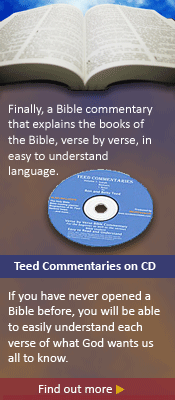Thursday • April 24
Position Statements
The Culture
Peoples' views are often at odds with one another. Democrats don't see eye to eye with Republicans. Muslims see things differently than Christians. Even within Christianity there are opposing views: Protestants, Roman Catholics, and Eastern Orthodox. Underlying these differences are worldviews that lay the foundation for our sense of meaning and purpose. In fact, worldviews can be outlined in terms of their response to four basic questions which sort all religious thinking and activity:
- What is real? What is the nature of ultimate reality? Is this sensible universe all that there is? Is this physical universe an illusion? Who or what is God?
- Who am I? What does it mean to be human? What is the purpose of human existence? What are we doing here? What is the stuff of which we are made?
- What is wrong? What is the origin of suffering and evil? Why do we die? What keeps humans from utopia?
- What is the solution? How does one remedy this problem? How does one attain salvation?
Fundamentally different answers to these questions exist, resulting in rival worldviews. Our culture tells us we should accept either the worldview of Naturalism or Pantheism.
Naturalism
Naturalism holds that nature is all that exists. "What you see is what you get." Naturalism is atheistic (there is no God). Personal identity ceases at death. Humankind must define what is right and wrong (Humanist Manifesto II, 1973). The naturalist maintains that if we could be mature and rational about all of this we could get along much better as individuals and as a race. The solution is quite simply to become more scientific in our thinking about everything. Ethics stem from human need and interest. As an example, within the sphere of sexuality the naturalist denies that sex is a relationship ordained by God for a specific purpose: furthering the personal relationship; an unconditional transparency, trust, and mutual submission, established by the marriage covenant. According to the naturalist, sex is simply a human convention which can be revised by humans. Since humanity is the highest end, sexuality must be defined relative to human needs and desires.
Naturalism's ethic is consistent with living a very moral life in order to advance humanity's future. According to the Manifesto, "Human life has meaning because we create and develop our futures." Humanity should work for a better world, which can be achieved by the appropriate use of science. When I was a boy there was a television show called, Mr. Wizard. It was a science show that helped reveal many of the mysteries of science to its young viewers. As I recall the program was sponsored by Monsanto and their theme was, "Better living through chemistry;" kind of the way the naturalist looks at things.
Pantheism
In contrast to naturalism, pantheism believes that there is some sort of higher power. Some may think that power to be God, others may feel that it's something within and can be developed through discipline and living a good life. One type of pantheism is the "New Age" movement (unity with God that is found within oneself), which is so popular in the culture today. Basically pantheism refers to the view that "God and the world are one: everything is God and God is everything." New Agers believe that the culture is getting better and are looking forward to a united world living in cooperation for the survival of the planet earth.
Other world views include:
Dualism
Dualism holds that there are forces of good and evil in the world. History is a struggle between these two forces. The philosophy of this movement accepts God but limits Him. God is not all powerful and in control of the world. Dualism believes in God and knows that He hates evil and suffering, but He is not able to eliminate it.
Deism
Deism feels that God created the universe and human beings with a moral conscience and then retired. Deists don't think God is active in human history. Meanwhile, however, human beings are responsible to live moral lives that are based on sound, rational principles.
Christian Theism
God created the world and is personally and continually involved in day-to-day operations of that world, working in the lives of those who seek Him, and in some cases the lives of those who aren't seeking Him. Humans are to serve God and will answer to Him for their behavior in the life to come.
You will find that the Bible deals repeatedly with all the circumstances covered by these Postiion Statements and other pages on the website. If you wonder what decisions you should make in life, you can simply go to your Bible and look up that topic in the concordance, which will direct you to the chapter and verse in the Bible that will either answer your question or give you direction. The Bible is the most authoritative handbook for living ever written. It is the very voice of God speaking to each of His sons and daughters from Heaven itself. If you study it carefully, and ask God for His guidance, you will come to believe it. But that is your decision in your time and no one in this church is going to pressure you to make that decision, because it must come from the heart. We will, however, be available to discuss the Bible with you and answer any questions you might have.
More about Village Church:
Overview |
Principles |
Our Plan

 Print this page
Print this page